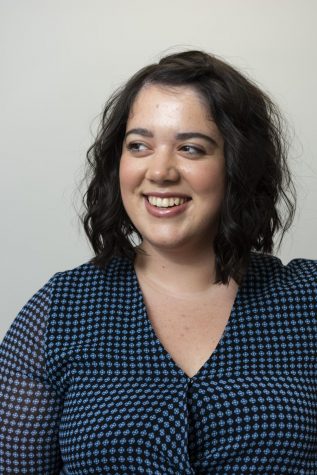Editor’s Note: News organizations must use inclusive, accurate language
September 15, 2019

Co-Editor-in-Chief
(312) 369-8961
Language defines our values as a society. By utilizing inclusive and accurate words, news organizations can use their weight to shift cultural norms and acceptance in a climate growing more polarized and prejudiced by the day.
That is why, from now on, The Chronicle will be adopting two new style changes: using gender-neutral terms, specifically for the outdated title “alderman,” opting instead for the use of “alderperson” or “alderpeople,” and referring to the current environmental state as a “climate crisis.”
ALDERPERSON
Currently on Chicago’s City Council, there are 15 women who serve out of 50 alderpeople—that is 30% of the governing body that determines issues in the city ranging from building permits to whether Columbus Day should be renamed Indigenous People’s Day. Women make up 51% of the city’s population, yet those in leadership positions have a job title that pays homage to their male counterparts.
“[Efforts to] make sure that we are making visible the fact that we live in a society that is still gendered, [which] puts people in some sort of box … are really great,” said Ald. Rossana Rodríguez Sánchez (33rd Ward), who is also a former Columbia internship and career advisor.
In 2011, former Evanston Ald. Jane Grover attempted to change the term to be gender-neutral, but the ordinance was voted down because of the cost of altering all documents and business cards.
Even in 2019, Rodríguez Sánchez said she still hears her colleagues discuss the possibility of change.
By normalizing the gender-inclusive phrasings of male-dominated jobs—instead of using traditional terms like policeman, fireman, alderman, spokesman, congressman—we as journalists are showing that any person can be part of any career regardless of gender norms.
As a student newspaper, we want to put that inclusive dialect into the minds of our readers.
“Language shapes culture, and the way in which we communicate has a direct impact on how we interact,” Rodríguez Sánchez said. “We should be looking for all the opportunities available to us through language to make for a more inclusive culture.”
CLIMATE CRISIS
One of our values as members of the next generation, and as Columbia students, is protecting the environment. As journalists, we also value accuracy.
So, let’s be accurate and call it what it is—a crisis. We are facing a global climate crisis, not just a change in our climate. News organizations have a duty to accurately represent issues, and that includes defining the weight of environmental issues.
Groups such as the Sunrise Movement, a coalition of young people across the nation fighting for aggressive environmental policies, have lobbied local and federal governments to declare the crisis a national emergency.
“A big part of the public and everyday people not being aware of what’s going on in our world [is due to] our news outlets not addressing it accurately,” said Kyrsten Jovita Bilkey, a Sunrise Movement Chicago member and campaign coordinator for environmental advocacy group Greenpeace USA. “We are living in a crisis, and we have news outlets that don’t talk about what it is.”
She added that it’s important for student voices to stress the urgency of the situation because “grown adults can’t talk about it.”
Using the more accurate term “climate crisis” is not an attempt to give our readers climate anxiety or a sense of doom, but to more accurately represent the direness of the situation. But, as Bilkey said, the first step in addressing problems is acceptance, and then, progress can be made.







